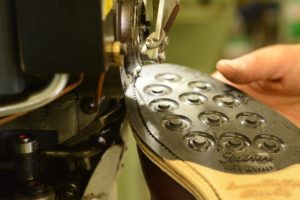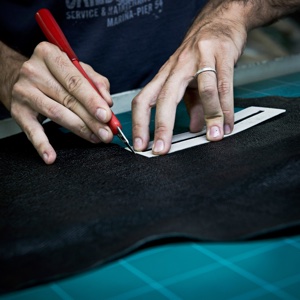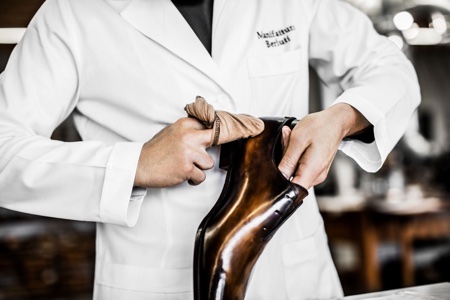Under the spotlight at Montecitorio Palace on 30 May was the industry’s critical workforce situation and the scenario of technical and professional training in Italy, during the presentation of the Altagamma book “I talenti del fare” [Skilled talents] before the Ministry of Cultural Heritage and Activities, Alberto Bonisoli, the Vice Minist er of the Ministry of Ec
er of the Ministry of Ec onomic Development, Dario Galli, and the President of Altagamma, Andrea Illy. Altagamma has estimated that by 2023, Made in Italy will need a total of 236 thousand qualified technicians and professionals. For the fashion industry alone, there will be a demand for 46,400 professional figures divided up between the sectors of footwear, leather goods, tailoring, fabrics, and knitwear.
onomic Development, Dario Galli, and the President of Altagamma, Andrea Illy. Altagamma has estimated that by 2023, Made in Italy will need a total of 236 thousand qualified technicians and professionals. For the fashion industry alone, there will be a demand for 46,400 professional figures divided up between the sectors of footwear, leather goods, tailoring, fabrics, and knitwear.
The problem lies in finding personnel qualified to do these jobs, since only 15% of today’s students have chosen Italian professional institutes in this sector. With only 10,000 students currently enrolled in technical colleges, Italy is far behind neighbouring countries like France with its 240,000 students and Germany with its incredible enrolment of 880,000 students. With these numbers, it is clear that the generational changeover in high-end manufacturing has arrived at a critical point. This is why Altagamma has proposed the creation of an institutional Work Table dedicated to encouraging the enrolment of students in this sector, asking for a better promotion and repositionin g of these jobs, which are not seen very favourably by today’s youths.
g of these jobs, which are not seen very favourably by today’s youths.
“These are manual trades that must be fully valued so the talents of the future receive the right kind of training – commented Andrea Illy – otherwise, manufacturers will move their businesses outside of Italy. Italy has a complex professional educational system, divided up between the government and its various regions, with a complex legislative system requiring the creation of a foundation before setting up a technical college. Today, there are 90 in Italy”.
Minister Bonisoli replied that in order to fill the generational gap, “we must be fully committed to recovering manufacturing trades, with a suitable educational offering made possible by the priceless legacy of expertise offered by Italian companies, and the cooperation of institutions. We will contribute to the development of the sector and requalification of the related professions, while also developing new meanings and providing further incentive in following the Made in Italy pathway”.



